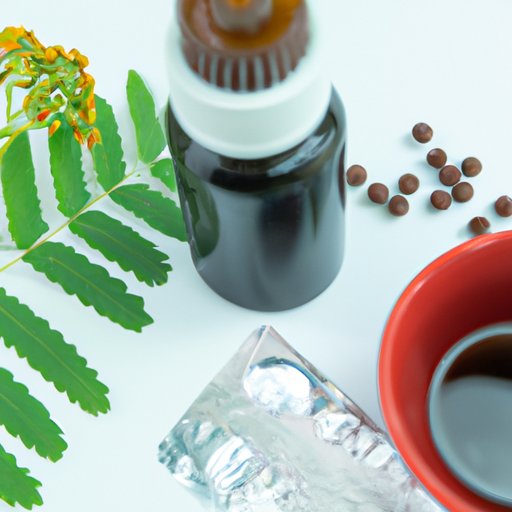
Introduction
Boils are skin infections that begin as red, tender bumps and gradually fill with pus as they grow in size. They are often caused by bacteria and can develop anywhere on the skin. Boils can be painful, uncomfortable, and embarrassing, especially when they occur in areas that are visible to others. Fortunately, getting rid of boils doesn’t always require medical intervention. In this article, we’ll explore how to get rid of boils overnight using a range of remedies, including topical treatments, essential oils, diet changes, over-the-counter medications, hygiene practices, herbal remedies, and medical treatment, when necessary.
Topical treatments
One of the most effective ways to get rid of boils overnight is by applying warm/hot compresses to the affected area. Warm compresses help to bring the pus to the surface, thereby reducing inflammation and promoting faster healing. All you need is a clean cloth and warm water. First, soak the cloth in hot water and then apply it to the boil for about 10 to 15 minutes. Repeat this process several times a day to experience the benefits. Other topical treatments such as tea tree oil and castor oil can also help speed up healing. Tea tree oil has natural antimicrobial properties that can help prevent infections while castor oil contains ricinoleic acid, which can reduce pain and inflammation. Simply apply a small amount of either oil to the boil and cover it with a bandage to keep the affected area clean and protected.
Diet changes
Maintaining a healthy diet can help boost your immune system and reduce your risk of developing boils. Consuming foods that are rich in antioxidants and vitamins such as vitamin C can help enhance your immune function. Examples of foods that contain high levels of vitamin C include oranges, lemons, grapefruits, kiwi fruits, strawberries, and pineapple. Incorporating these foods into your regular diet can help reduce the frequency of boils and support faster healing when they occur.
Essential Oils
Essential oils such as lavender and oregano oil contain antibacterial properties that can help prevent infections and promote faster healing. Simply blend a few drops of lavender or oregano oil with a carrier oil such as coconut or olive oil and apply it to the affected area. This mixture can also be used as a natural antiseptic for small cuts and scrapes.
Over-the-counter Medications
Over-the-counter medications such as antibiotic creams can help prevent the spread of infection and reduce the risk of further boils. Applying a small amount of antibiotic cream directly to the affected area can help keep the boil clean and protected. Additionally, pain relievers such as ibuprofen can help to ease pain and reduce inflammation in the affected area.
Hygiene practices
Good hygiene practices are essential for preventing boil formation. To prevent the spread of infection, it is important to keep the affected area clean and dry. Avoid sharing personal items such as towels or razors and wash your hands regularly to avoid spreading bacteria. If you have a boil, washing the affected area with warm water and soap can help to keep the area clean and prevent further infection.
Herbal Remedies
Herbal remedies such as garlic and turmeric can be used to treat infections and inflammation. Garlic contains natural antibacterial and anti-inflammatory properties that can help prevent the spread of infection and promote faster healing. Turmeric is known for its anti-inflammatory properties and can help to reduce pain and swelling. You can add these herbs to your regular diet or create a homemade topical cream by mixing powdered turmeric or crushed garlic with coconut oil and applying it to the affected area.
Medical treatment
In some cases, medical intervention may be required to treat boils. If you have recurrent boils, or if they are particularly large or painful, it is important to seek medical attention. Your healthcare provider may prescribe antibiotics to help clear up the infection or suggest draining the boil to promote faster healing. Depending on your individual circumstances, additional treatment options may be recommended.
Conclusion
Getting rid of boils overnight requires a multifaceted approach that includes a combination of topical treatments, essential oils, diet changes, over-the-counter medications, hygiene practices, herbal remedies, and sometimes medical treatment. Maintaining good hygiene practices and incorporating healthy foods into your diet can help prevent the formation of boils, while topical treatments and essential oils can help promote faster healing and reduce discomfort. Remember to seek medical attention if you have recurrent, large, or painful boils.





